Cambridge Common Writers is thrilled to host another round of Spotlight interviews in honor of Black History Month! We’re pleased to start off this month with Rahima R. Rice, a Writing for Stage and Screen alum who tells us about her work with The 4208 Group, writing for Looper, and finding the right voice.
Rahima R. Rice — Writing for Stage and Screen, January ’19

Rahima R. Rice is an award-winning writer from Washington, DC. She has a BA in Mass Media from the University of the District of Columbia, and a Master of Fine Arts in Creative Writing for the Stage & Screen from Lesley University. Rahima’s stage and screen work has been featured in the OLA Film Festival, the Anacostia Playhouse Visions/Revisions New Works Festival, and Signature Theatre’s SigWorks Reading Series. She has been published in LEVEL Magazine, The Daring, Looper and Medium. Rahima is the founder of the DC-based arts & entertainment company The 4208 Group, and curator of the 10-minute play festival The 10-Minute Taste.
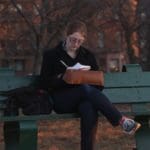
Interviewed by
Julia Leef
What drew you to writing for stage and screen over something like poems or prose?
I had been performing as an actor [from] childhood through my early undergrad years. So, I was always drawn to play and film. I stumbled upon the fact that people wrote films when I was about 13. I was watching a movie and paying attention to the credits I saw, ‘written by.’ And I was like, ‘Whoa. Hmm. Okay, so someone did that.’ Noticing that someone wrote this thing out, that was interesting to me, so I started reading scripts and really trying to understand how someone pieces together a film from an idea. I’d always loved all sorts of writing—fiction, poetry, nonfiction essays—but none of the other genres invigorated me in the way that playwriting and screenwriting did. I produced some plays in my 20s and just didn’t know where I was going to go with them, but I knew I wanted to elevate my writing career in some way and becoming more educated seemed like the best way to do that. I knew someone who graduated from Lesley in the poetry genre, and he suggested that I stop playing around and go ahead and apply to the program because he said it would just benefit me in all sorts of ways that would take me longer if I just was trying to go at it on my own.
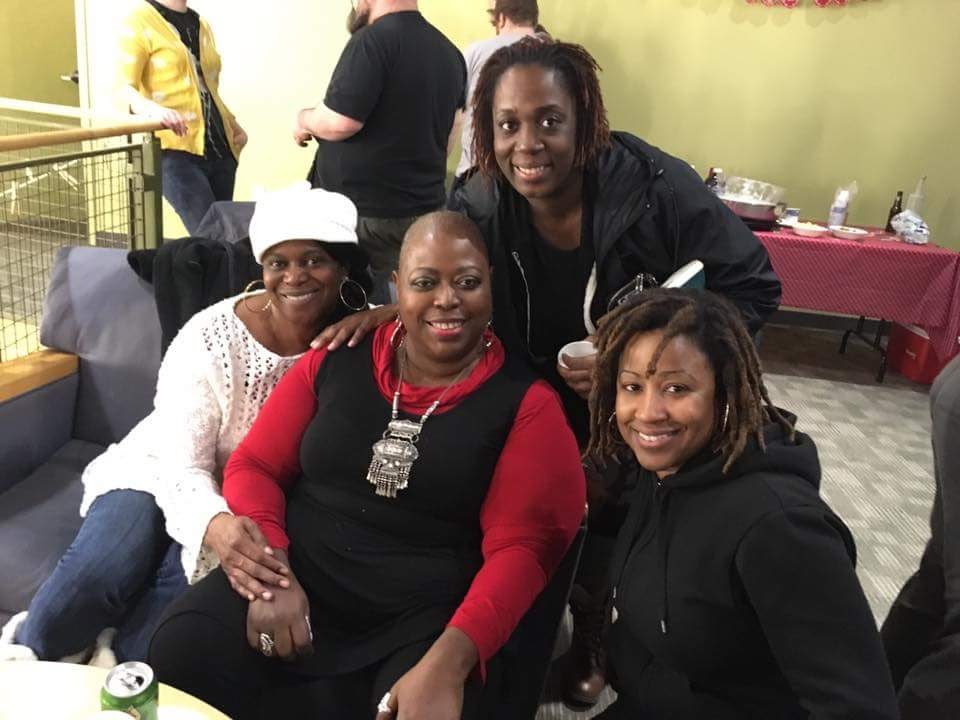
Did you find the program helped to shape your writing in certain ways?
Absolutely. I thought that I was so talented before I came to Lesley. And then I realized I had so much to learn. I was always kind of waffling before, hoping that someone would tell me something was good enough, as opposed to knowing that I’d written something really great before even sharing it with people. Lesley gave me my experience; Lesley gave me the tools and the knowledge and the steps to be able to craft something that is really great out the gate.
One of the things I learned at Lesley [was from] a panel about being a professional writer. Adrian Matejka was talking about when he finished grad school [and] didn’t write for a long time. He got a job, and he was teaching, and he just didn’t write. But it wasn’t like he forgot how to write. He eventually wrote a book, and it all came together. So, he was saying, ‘Don’t put this pressure on yourself to stick to this [idea of] writing every day for two hours or you’re going to lose your writing.’ I never forgot that. I don’t write every day. I do it, and I get it done, but I don’t put this pressure on myself to stick to this maniacal writing schedule.
Where do you draw inspiration from, whether it’s playwriting or some of your essay work?
I tend to draw inspiration from personal experience. My personal essays are experiences that I’ve had or interactions that I have with people, things that I observe from people. With plays and films, I tend to pull some from personal experience but also from things that I hear or people that I see in the news, not like big headline people but a random news story that I see. I might be interested in that particular character and who they are and maybe shape a story around that.
In addition to your regular writing, you’re also part of The 4208 Group that creates spaces for women creatives. What inspired you to take an active role in promoting and supporting women voices specifically?
When I started 4208, I didn’t know what I wanted to do besides produce plays and films on a professional level. Over the years, it became clear to me that the missing piece was women’s voices and the creativity of women artists. I decided to take a risk and say, ‘this is all we’re going to focus on.’ There are a ton of male screenwriters when you go to any kind of festival or film workshops, and women are not taken very seriously. That needs to change, and I think that it takes groups like mine to just do something radical. It’s not to be exclusionary in any way, just to uplift a particular group because there’s such an absence of that presence. That was really the main goal.
I’m raising a daughter, and it was important to me for her to see all that women can do. There’s this quote by Sally Ride, “You can’t be what you can’t see.” When I saw that I thought, yeah, that’s it. That’s it. She won’t think to become all of these things that she can absolutely become if she doesn’t see women doing those things. I thought about all the other little girls who maybe don’t see women writing and don’t get introduced to women writers. In a lot of educational spaces where I’ve worked, it’s always–I love August Wilson, but August Wilson is not the only famous black playwright. But August Wilson is always in the English curriculum for middle and high school students. There’s not a lot of women playwrights and women voices and women screenwriters and women filmmakers, so that was important to me that girls see all that they can do.
One of the subsets of The 4208 Group that you curate is the 10-Minute Taste festival, which only accepts women playwrights. What are some of the other criteria you use when determining which playwrights will participate?
We look for people who are writing stories outside the box, something that’s unique. I like an interesting drama, that’s great, but I’m looking for something that tugs at the heartstrings in a particular way, something that’s going to silence the audience, or something that is going to be so entertaining that it jumps off the page, that I can visually see it being funny as I’m reading it. I can see people in the audience uproariously laughing. But definitely a unique story, something that I as a writer am envious of when reading. If I can read it and go, ‘Wow that’s a great idea, I wish I wrote that,’ then I’m more inclined to include it in the festival.
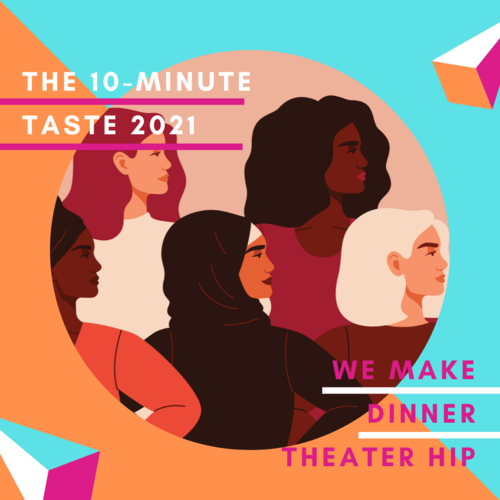
Last year you were a writer for Looper where you had to write several articles a week. What was it like to write with those kinds of deadlines and what sort of challenges did you have to overcome?
It was challenging, but I appreciated the challenge. I appreciate having gone through the experience so that I at least know what it is, and what doesn’t work for me. I feel like you never really know what you don’t like until you’ve experienced it. Looper was perfect because we were in a pandemic, and I needed to work, and there wasn’t a lot of work. But I am a writer, so I was able to secure a job writing for this film and TV site, [doing] something that I actually like to do, which is watch movies and TV shows.
Looper really taught me a lot about what isn’t included in more journalistic-style writing. I had to really pull back a lot to not include so much of myself in these articles. I had to understand a different voice and really take the time to figure out what that voice is: Who is journalist Rahima? Where does that person exist? Where does that voice exist? How do I convey an opinion without digging too deep into my personal [life]? So that was challenging. And writing at that pace was challenging. I would be turning out three to four articles a week sometimes. And, yeah, there were some writers who could stay up all night bingeing a whole series so that they could write the article in that same time frame. I was not that writer. So, eventually that didn’t work for me, but I appreciated the experience. And I have a ton of articles under my belt now, so that is a good thing.
Your comment about how you had to reign in your voice and find the ‘journalist Rahima’ for those articles is very interesting, especially since you’re someone who writes across all genres. Do you find one more personal than the other?
Yeah, they are very different. For Looper, I really had to tap into people that I hear when I’m watching E! News or Entertainment Tonight or Access Hollywood, certain patterns of speech that those entertainment news journalists use when talking about an actor or movie. I had to make sure that I was staying in that lane. I [usually] write in a voice that is me talking to one of my friends on the sofa. It’s very chill, but still with this literary quality where I do turn to the Thesaurus every so often. In the midst of the conversation, I think to myself, well, what word would I put in here so that her response would be, ‘that’s a big word, that is too big of a word to be using in this conversation, like girl calm down.’ So there’s that.
And then with the plays and films, I’m always—plays more than the films—I’m always thinking about the audience. I’m always thinking about the fact that this is something to be seen live. A big difference between plays and films is that with screenwriting, screenwriters desperately hope that the movie will be made somehow, some way, someday, but you never know. It’s such a gray sort of business. But with plays, there’s the possibility of you just putting it on yourself There’s a possibility of you just booking a space and finding some actors and getting your stuff out there. As I’m writing it, I’m thinking about emotional pauses, I’m thinking about space where someone might gasp. I’m thinking about those moments, because those are moments for the actors as well, those are moments for them to really settle into an emotional space. So, I’m thinking about all of that as I’m writing, and I’ve tapped into this voice that is a bit more melodramatic almost, because I understand what that melodrama feels like for the audience.
You had a TV pilot picked up as well, maybe a year or so ago, right?
I wrote two episodes of a limited series. Even though we were living in this crazy time [during the pandemic] that was so horrible, and there were so many horrible things going on, there were these small little benefits. One of them, at the height of the pandemic, was [that] LA opened up. People started putting little calls out on social media sites saying, ‘I need a writer for this and since we’re all on Zoom anyway, I’m open to anyone.’ This guy who has a small independent production company in LA, he put that call out. I responded immediately. He wanted a group of people to create a writers’ room for this one series that was a half hour comedy. So he had us in teams, but it wasn’t really coming to fruition. One day in a meeting, he said, ‘Well, I have this other idea that probably will get funding and get picked up to go into production a lot sooner. It’s a psychological thriller. If anyone’s interested, just hit me up.’ Two seconds after the Zoom ended, I emailed him.
I’ve never written a psychological thriller. I had never written an hour-long TV show before, but I knew that I wanted my stuff to be produced somehow, some way. And like every screenwriter nerd, I wanted an IMDb credit. That was important to me, for someone to be able to go on IMDb, see my name and see that I wrote a TV show. It was a five episode limited series. The end result wasn’t necessarily what I expected. But I had my first professional experience of, ‘I have no control over that, I’m just the writer.’ And at the end of the day, my words got out there, people acted out my words, and they produced it, and that was good enough for me. I was excited about that process.
Are there any projects you’re working on right now?
Last year, a friend of mine that I grew up with created this arts magazine online called The Daring. It’s a mix of visual art and poetry and essays. It’s all contributor-based, but because we are BFFs for life, she liked the idea of me having my own column. So I started this column called Simone and Lorde—after Simone de Beauvoir and Audre Lorde—because I wanted to write about sex and power. Simone de Beauvoir wrote The Second Sex, and when I was in high school reading that I thought it was juicy but a total feminist Manifesto. And Audre Lorde is like the black feminist manifesto walking, or was. So I was like, ‘Oh that’s a cool title for a column, about sex and feminism.’ My most recent essay is about being a city girl—it’s called City Girls—and what that means, and how that’s affected my life and my interactions with people over these 42 years.
I’m going to be continuing to teach, I’m continuing to write personal essays for Simone and Lorde, but I’m possibly coming out with a fiction column on The Daring that is still in talks. If it’s not on The Daring, it might just be through my Medium page. I had been blogging on Medium for a while before I started writing on Looper. And I am working on a short film this year and doing a lot of revision. After grad school I promised myself to work on revision and get all this stuff in shape, but I just dove headfirst into being a working writer. But there’s so many scripts that I haven’t gotten to, and I really want to get to them.

Listen to Rahima read her essay, “Coming in Third: Truths About Dating a Solo Parent“

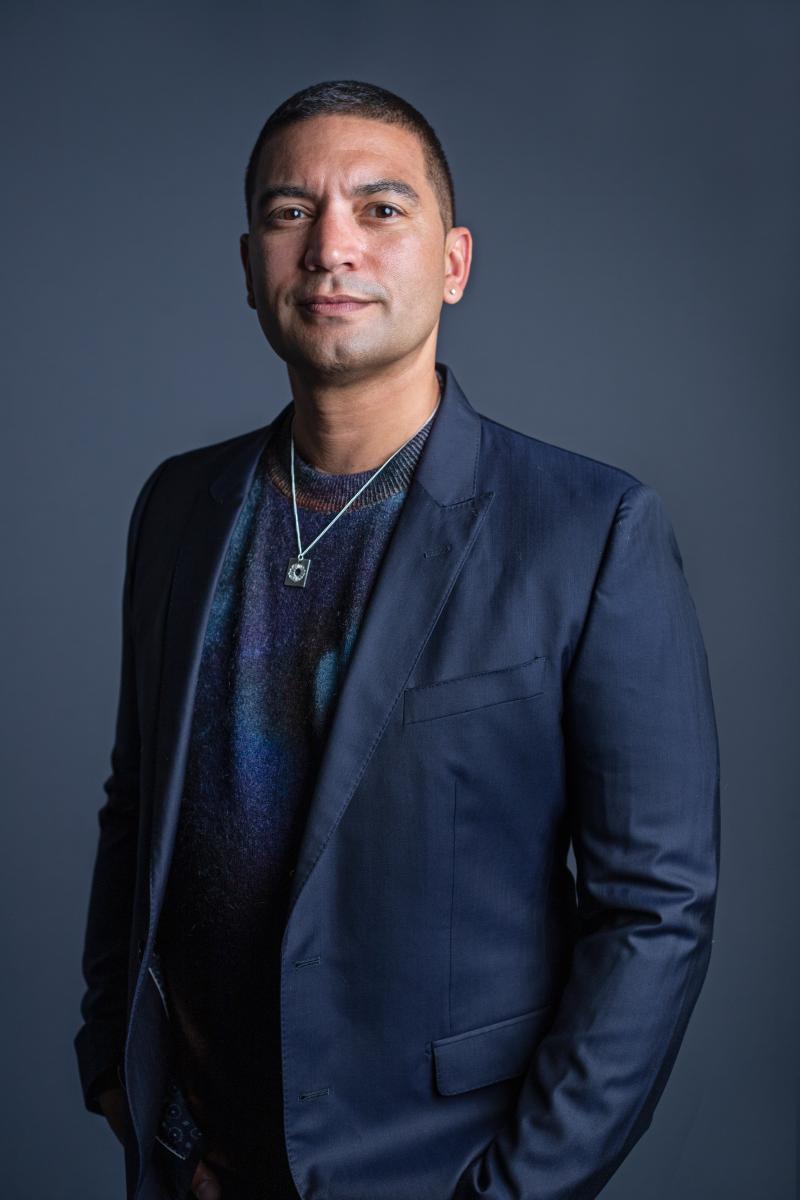
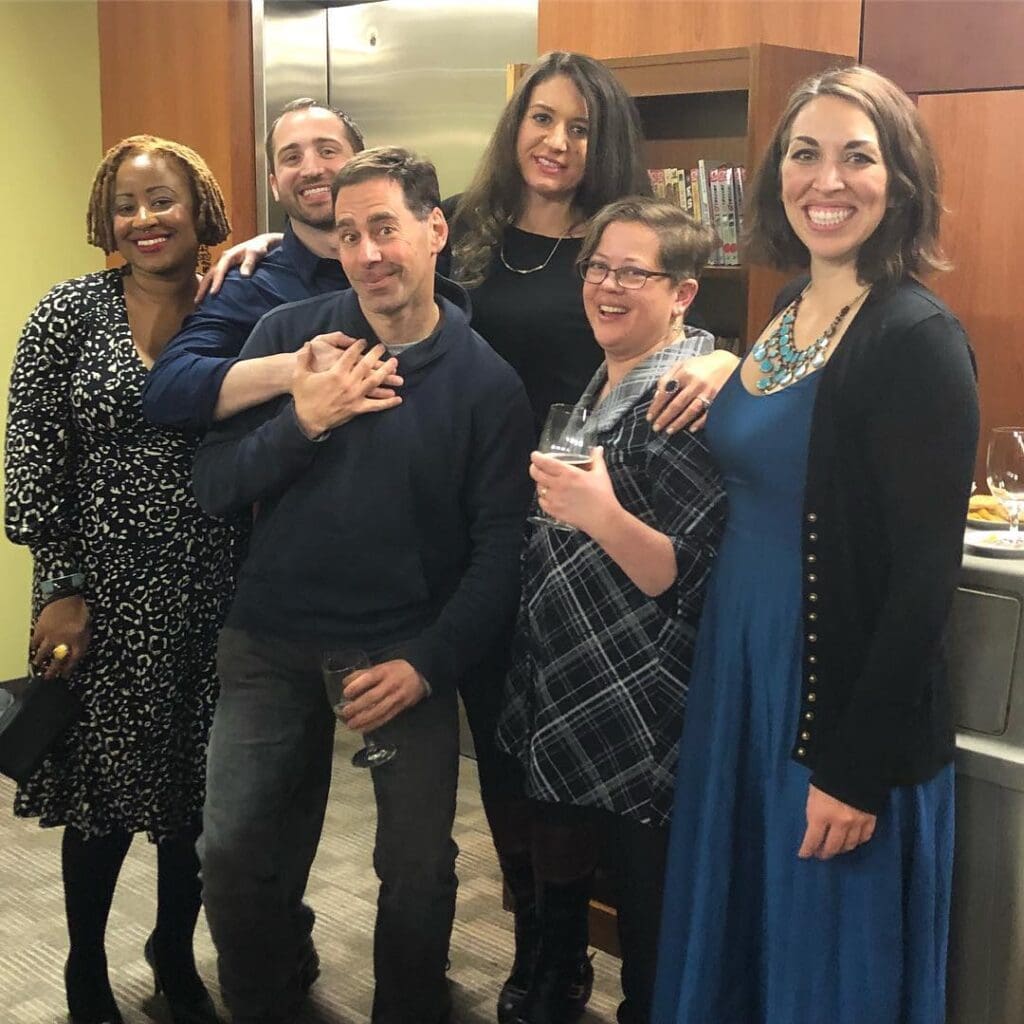


Comments are closed